The Essential Guide to Chicken Vaccinations
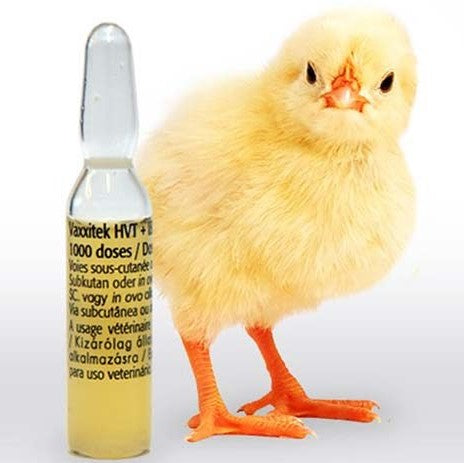
Vaccinating chickens is crucial for protecting them from severe diseases. Here are the details on chicken vaccination, including when to vaccinate, what vaccines are available, and an introduction to each vaccine.
Vaccination Timing
The vaccination schedule for chickens may vary based on the specific vaccine, the age and health of the chicken, and the disease risk in the region. Generally, vaccinations start from the first day of hatching, and some vaccines may require booster shots at different stages of growth.
Types of Vaccines and Introduction
1. Marek's Disease Vaccine
Timing: Usually administered within the first day of hatching.
Introduction: Prevents Marek's disease, which affects the chicken's nervous system and organs, leading to paralysis and death.
2. Salmonella Enteritidis Vaccine
Timing: Administered within a few weeks of hatching, as per manufacturer's guidelines.
Introduction: Prevents Salmonella infections, a common foodborne illness that can be transmitted to humans through contact with infected chickens or chicken products.
3. Coccidiosis Vaccine
Timing: On the first day of hatching or as per the product instructions.
Introduction: Prevents coccidiosis, a parasitic disease of the chicken's intestines, causing poor digestion and stunted growth.
4. Infectious Bursal Disease Vaccine
Timing: Typically administered between 3 to 6 weeks of age.
Introduction: Prevents infectious bursal disease, which affects the chicken's immune system, making them more susceptible to other diseases.
5. Infectious Bronchitis Vaccine
Timing: Depending on the vaccine, it may be administered in the first week after hatching or in the following weeks.
Introduction: Prevents infectious bronchitis, a viral disease affecting the chicken's respiratory system, leading to severe respiratory issues and reduced egg production.
6.Newcastle Disease Vaccine
Timing: Based on the vaccine type, it may be administered in the first week after hatching and boosted during growth.
Introduction: Prevents Newcastle disease, a highly contagious viral disease affecting the respiratory, nervous, and digestive systems of chickens.
7. Infectious Laryngotracheitis Vaccine
Timing: Usually given in the later stages of growth.
Introduction: Prevents infectious laryngotracheitis, a severe disease affecting the chicken's respiratory system, causing breathing difficulties and death.
Vaccination Program for Broiler Breeders
|
Age |
Vaccine |
Route |
Type |
|---|---|---|---|
|
1 day |
Marek disease |
SC |
Turkey herpesvirus |
|
6–7 days |
Tenosynovitis |
SC |
Live (mild) |
|
14–21 days |
Newcastle disease/infectious bronchitis |
Drinking water |
B1/Massachusetts |
|
14–28 days |
Infectious bursal disease |
Drinking water |
Intermediate |
|
4 wk |
Newcastle disease/infectious bronchitis |
Drinking water or coarse spray |
B1/Massachusetts |
|
6–8 wk |
Tenosynovitis |
SC |
Live (mild) |
|
8–10 wk |
Infectious bursal disease |
Drinking water or coarse spray |
Live |
|
|
Newcastle disease /infectious bronchitis |
Drinking water or coarse spray |
B1 or LaSota/Massachusetts |
|
10–12 wk |
Encephalomyelitis |
Wing web |
Live, chick-embryo origin |
|
|
Fowlpox |
Wing web |
Modified live |
|
|
Chicken infectious anemia |
Wing web |
Modified live |
|
|
Laryngotracheitis |
Intraocular |
Modified live |
|
|
Tenosynovitis |
Parenteral |
Inactivated |
|
|
Fowl cholera |
Parenteral or wing web |
Inactivated Live CU, PM-1, or M9 |
|
12–14 wk |
Newcastle/infectious bronchitis |
Water or aerosol |
B1 or LaSota/Massachusetts |
|
14–18 wk |
Fowl cholera |
Parenteral or wing web |
Inactivated Live CU, PM-1, or M9 |
|
16–18 wk |
Infectious bursal disease |
Parenteral |
Inactivated |
|
|
Tenosynovitis |
Parenteral |
Inactivated |
|
|
Newcastle/infectious bronchitis |
Drinking water or aerosol |
B1 or LaSota/Massachusetts |
|
Repeat live vaccine administration every 60-90 days, or single dose at 18 wk with inactivated vaccine |
Newcastle/infectious bronchitis |
Parenteral |
Inactivated |
|
This is an example of a vaccination program. Individual programs are highly variable and reflect local conditions, disease prevalence, severity of the challenge, and individual preferences. Vaccine strains against Marek disease including SB-1, MDV301, or Rispens vaccine may be combined with turkey herpesvirus in some areas. Vaccination for fowlpox and laryngotracheitis depends on local requirements. Other strains of infectious bronchitis (Connecticut, Arkansas 99, Florida 88, etc) are included in some areas. |
|||
Vaccinating chickens is an important measure for protecting the health of the flock. To ensure the effectiveness of vaccination, it is recommended to work with a veterinarian to develop a vaccination plan suited to your flock. Additionally, maintaining cleanliness in the chicken coop, providing sufficient nutrition, and clean drinking water are key measures for preventing diseases. Using ZiDtia metal chicken coops can provide a safe, hygienic living environment for chickens, further reducing the risk of diseases.
The reference material for this blog is curated from a diverse set of authoritative sources, ensuring a comprehensive understanding of poultry vaccinations. These sources provide insights into the nuances of vaccination strategies, effectiveness, and practical approaches for both commercial and small flock owners. For further reading and to deepen your knowledge on the subject, we recommend exploring the information provided through the following links:
1. Vaccination of Backyard Poultry: https://www.merckvetmanual.com/exotic-and-laboratory-animals/backyard-poultry/vaccination-of-backyard-poultry2. Vaccination Programs for Poultry: https://www.msdvetmanual.com/poultry/nutrition-and-management-poultry/vaccination-programs-for-poultry
3. A Concise Review of Poultry Vaccination and Future Implementation of Plant-based Vaccines: https://www.cambridge.org/core/journals/world-s-poultry-science-journal/article/abs/concise-review-of-poultry-vaccination-and-future-implementation-of-plantbased-vaccines/
4. Small Flock Vaccination: https://www.thepoultrysite.com/articles/small-flock-vaccination
No comments









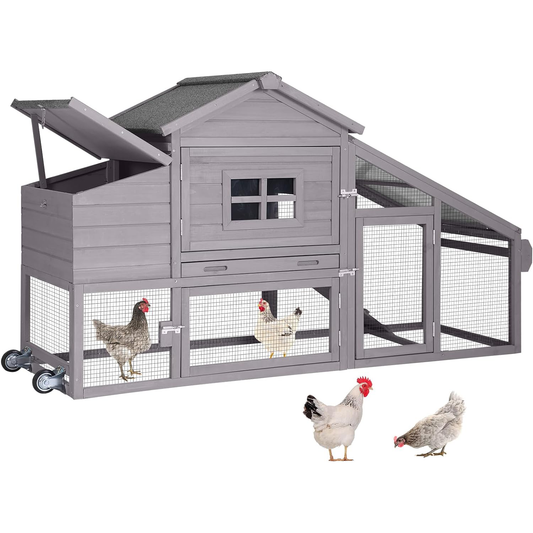

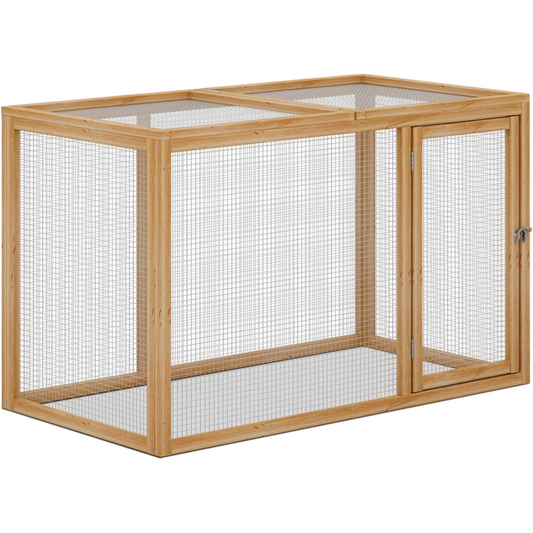

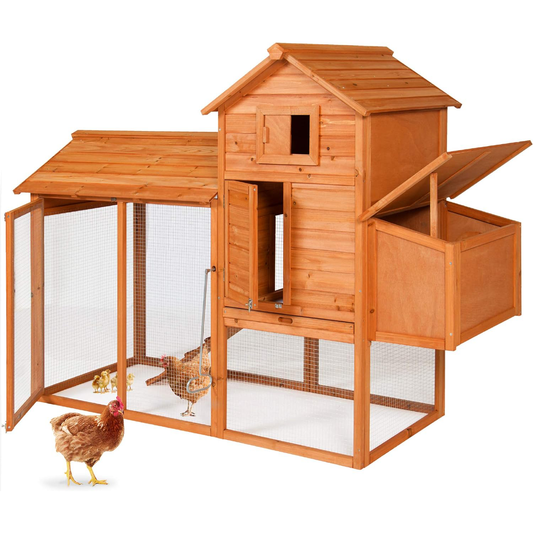



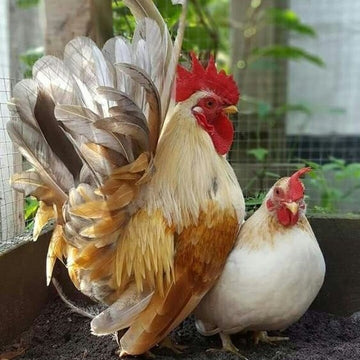

0 comments